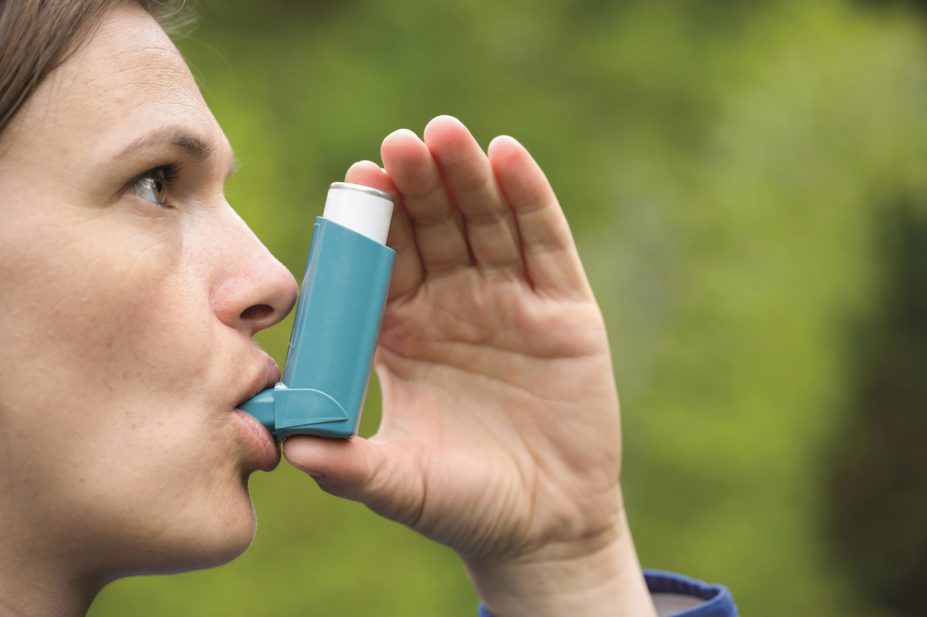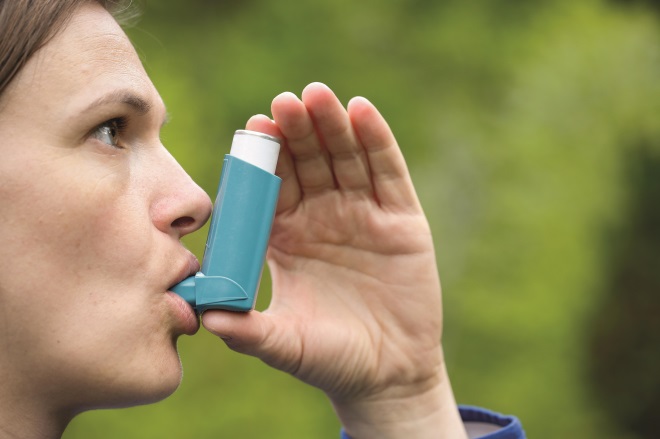
Shutterstock.com
Open access article
The Royal Pharmaceutical Society has made this article free to access in order to help healthcare professionals stay informed about an issue of national importance.
To learn more about coronavirus, please visit: https://www.rpharms.com/resources/pharmacy-guides/wuhan-novel-coronavirus

Source: Shutterstock.com
There has been a large increase in the prescribing of some inhalers since the COVID-19 outbreak was declared a pandemic
The number of some inhalers prescribed by GPs in England increased by 63% between February 2020 and March 2020, according to data analysed by The Pharmaceutical Journal.
Experts say the increase may be owing to patients with respiratory conditions being concerned about their health during the COVID-19 pandemic; however, it comes as some manufacturers report shortages of some devices.
The COVID-19 outbreak was declared a pandemic by the World Health Organisation on 12 March 2020. The same month saw the number of prescription items that patients in the community received jump by 14% to 94m in England, compared with February 2020, NHS data shows.
However, this conceals a large increase in the prescribing of some inhalers.
Data collated by NHS Digital and published on OpenPrescribing, show that 1,707,591 salbutamol inhalers were prescribed by GPs in February 2020, compared with 2,777,924 in March 2020 (a 63% increase), while prescribing of beclometasone inhalers rose from 918,952 to 1,429,334 during the same period (a 56% increase).
Year-on-year, there was also a significant increase in the number of salbutamol inhalers prescribed, rising from 1,793,879 in March 2019 to 2,777,924 in March 2020 (a 55% increase). Beclometasone inhalers saw a similar (54%) increase from 926,960 in March 2019 to 1,429,334 in March 2020.
Anna Murphy, consultant respiratory pharmacist at University Hospitals of Leicester NHS Trust said the increase in inhalers prescribed was “most certainly” related to the COVID-19 pandemic.
“There are [several] potential reasons why there was this increase,” she said.
“Patients stockpiling to ensure adequate supplies; an inappropriate increase in the prescribing of [short-acting inhaled beta-agonist] inhalers, thinking the drug will be efficacious in the management of breathlessness related to COVID-19; patients who were once diagnosed with asthma or previously prescribed inhalers deciding to re-start or order stocks just in case; and improved adherence to inhalers in those prescribed on a repeat basis aiming to ensure their respiratory control is maintained during this time,” she added.
“The last patient behaviour is the only one that I hope will continue.”
Toby Capstick, consultant pharmacist of respiratory medicine at Leeds Teaching Hospitals NHS Trust and chair of the UK Clinical Pharmacy Association Respiratory Group said that data published in the Journal of Allergy and Clinical Immunology: In Practice
on 3 May 2020 showed that adherence to asthma and COPD inhalers had increased by 14.5% during the pandemic.
“[This] is really interesting and may reflect patients responding to national guidance or the pandemic increasing patients’ concern about their asthma or COPD,” he said.
He added that, during the pandemic, some manufacturers had reported a “400% increase in demand” and pharmacies had reported difficulties in obtaining supplies of various inhalers, particularly those containing beclometasone.
“Generally, this has resulted from the demand exceeding the speed at which supplies could be delivered to wholesalers,” he explained.
In April 2020, The Pharmaceutical Journal reported delays in the replenishment of stocks of inhalers to wholesalers following a surge in demand caused by the COVID-19 pandemic, with manufacturer Chiesi importing seven additional batches of Clenil Modulite (beclometasone)100 microgram inhalers to meet demand.
A spokesperson for GSK told The Pharmaceutical Journal that it has “no issues with the supply” of its salbutamol inhalers.
The wholesaler AAH Pharmaceuticals placed five inhalers on its “out of stock” list on 26 May 2020, including Chiesi’s Clenil Modulite inhaler in 100 microgram, 200 microgram and 50 microgram inhalers, and Fostair (dipropionate and formoterol) 100/6 microgram inhaler, which it says are being allocated on a weekly basis owing to limited stock with the supplier; and Teva’s Qvar (beclometasone dipropionate) 50 microgram inhaler, which it says is now back in stock.


